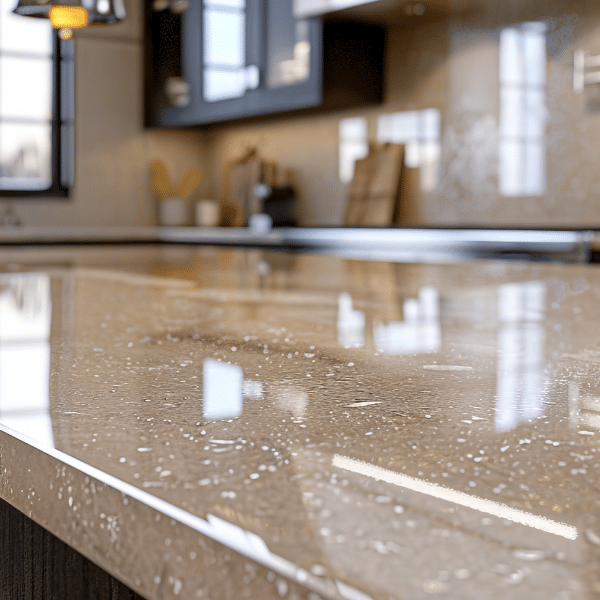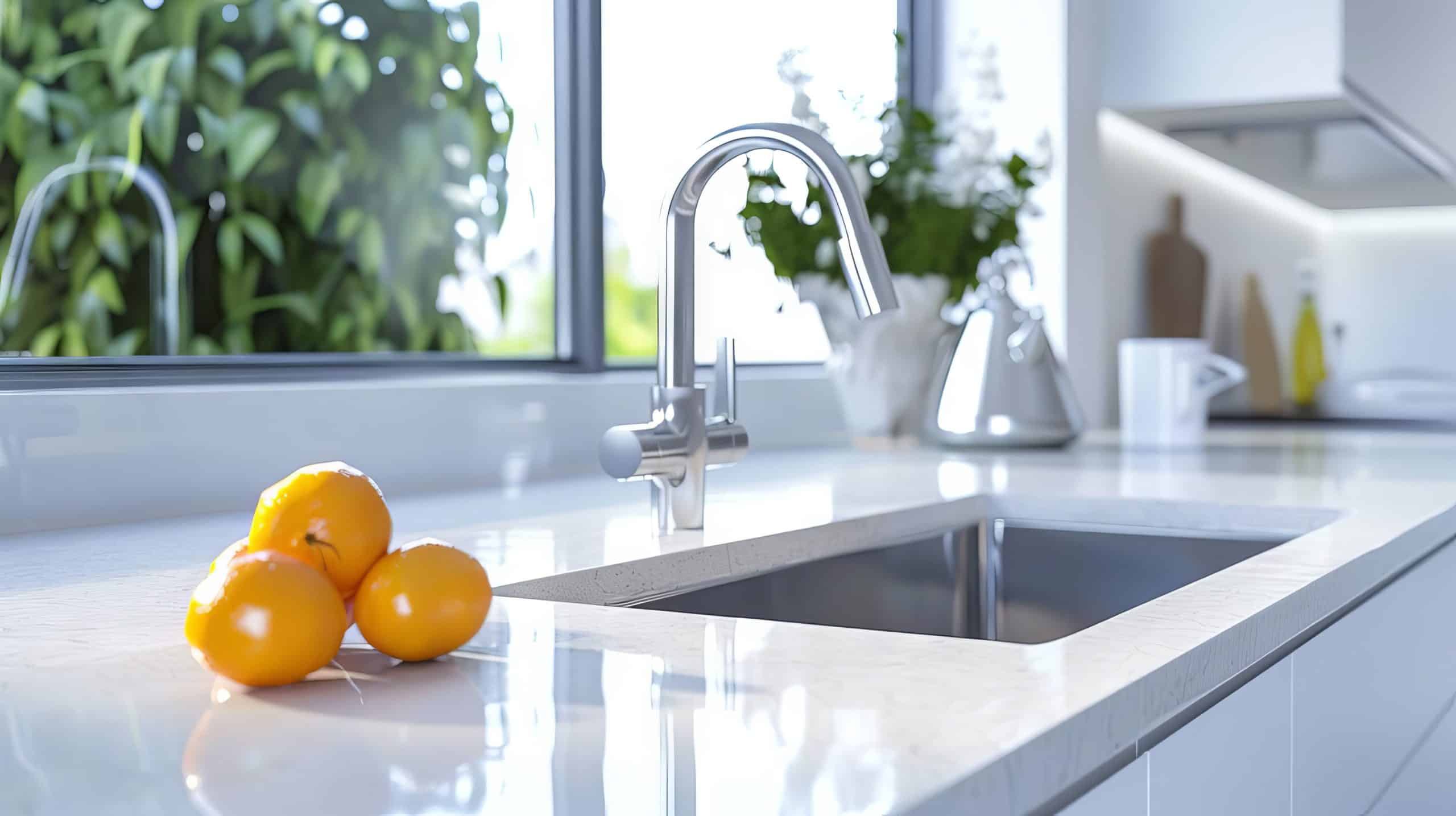Dos and Don’ts for Cleaning Your Quartz Countertops

Engineered quartz has been around for decades, but in recent years, it’s enjoyed a surge in popularity. This is partly due to increased awareness and availability but also technological advances that mimic the look of natural stone. Of course, modern homeowners have little time to attend to the upkeep some traditional counter surfaces require.
Quartz is a low-maintenance alternative that offers the same strength and durability as natural stone with the added benefit of a nonporous material that requires no sealing and delivers a food-safe surface. The only thing you need to know is how to clean quartz countertops, and the process is pretty simple.
Tools of the Trade
Engineered quartz is highly resilient but not indestructible, so you need the right cleaning tools on hand to keep your countertops looking fresh as long as possible. This mainly entails choosing soft tools that won’t wear down the surface over time, potentially dulling a glossy shine or creating inconsistencies on a matte finish.
The best tools for cleaning your quartz countertops are soft sponges and microfiber cloths. Never use abrasive tools like steel wool, even to scrub stuck-on food mess, as it could create micro-scratches that make the surface look filmy.
Cleansers for Every Mess
In addition to using the right tools, you need the right cleansers to deal with different types of messes. Learning how to clean quartz countertops isn’t rocket science, but there are a few key points to cover, and the cleansers you choose for daily cleaning, grime, and so on are important.
Daily Cleaning
Whether you love the bright appeal of white marble-look quartz or you prefer the dramatic contrast of Cambria Blackwood Quartz against honeyed wood cabinets, as in this traditional kitchen, you’ll find that daily cleaning is easily accomplished by wiping down counters with a damp sponge or microfiber cloth. If you’re worried about germs, try a simple solution of warm water and gentle dish soap.
You can also use an all-purpose household cleanser like 409 or Lysol. While these aren’t recommended for some counter surfaces, they’re perfectly acceptable for quartz counters, although you’ll want to avoid products that contain bleach.
The trick to keeping a glossy countertop is to dry immediately after cleaning. A dry microfiber cloth will help to prevent water spots and leave your counter surface shiny and bright.

Stains and Stuck-On Messes
What if you’re dealing with tougher grime like grease or food splatter? What if your kids take a Sharpie to your stunning white countertop, like the pristine Silestone Calacatta Gold Quartz in this farmhouse kitchen?
Don’t fret. Quartz is among the easiest counter surfaces to clean and maintain, even when life gets messy. Most surface stains can be removed with little more than a sponge and your all-in-one household cleanser.
If you need more, try a damp magic eraser sponge. Rubbing alcohol could also help to remove stubborn stains like those from permanent markers. Or you could try a mildly scrubbing agent like Barkeeper’s Friend or a paste of baking soda and water — just do so sparingly.
Scalding or Scorching
Quartz countertops are composed primarily of natural stone in the form of ground quartz. However, they also contain resins that bind the material together, creating the nonporous, food-safe surface modern homeowners love. Unfortunately, this means they’re not quite as heat-resistant as other stone countertops.
If you place a hot enough pan on the surface or splash boiling water, it could scorch or scald the material, causing discoloration. While you may not see the damage on a dark surface, it could cause a serious eyesore on white quartz designs, like the bright white PentalQuartz Lattice on prominent display in this Greenhaven transitional kitchen.
If the damage is mild, you might be able to scrub it away with an all-in-one cleanser and a sponge. You could also try placing baking soda paste on the affected area, letting it sit for a few minutes, and then wiping it away or lightly scrubbing it. For significant scalds or scorch marks, it’s best to call a professional to repair the damage.
What Not to Do
While mid-tone and dark colors like the PentalQuartz Coastal Gray island countertop featured in this traditional kitchen hide stains and damage better than white surfaces, they can still suffer visible harm over time with improper cleaning and maintenance.
The main thing to remember is that stains, spills, splatter, and scorches are easier to clean when you hit them up right away. Don’t wait until they’re set in. Even so, no matter how bad the mess is, try not to use harsh, abrasive cleansers or cleaning tools that could permanently harm the surface.
When you properly care for your quartz countertops, they can last for many years and continue looking brand-new. Knowing how to clean quartz countertops is the first step, followed by securing the right tools and cleansers.
Enhancing Your Home With Quality Quartz Countertops
Are you interested in adding quartz countertops as part of your next home improvement project? The talented team at Academy Marble can help. Contact us now or visit a showroom in Bethel, CT, or Rye, NY, to get started.


